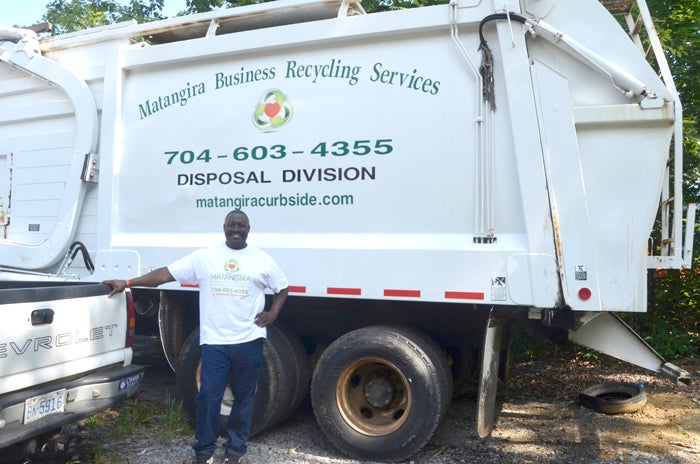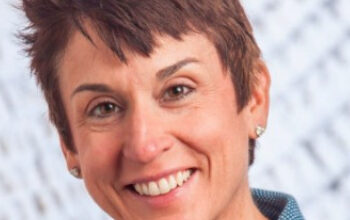Black business owners discuss race relations, business support
Published 12:00 am Sunday, June 14, 2020
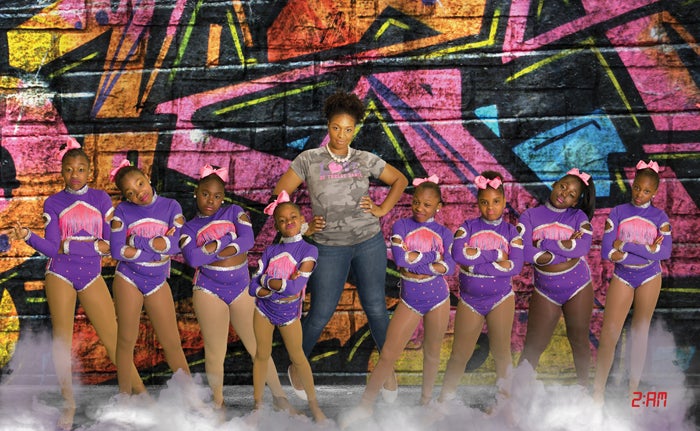
- Ivory Imes/2AM Photography Krystal Stukes of Triple Threat Dance & Charm joins her dance students in the pink purple team
By Shavonne Potts
shavonne.potts@salisburypost.com
SALISBURY — As people in Salisbury continue to protest against racism, inequality and police violence, many have turned their attention to ways to support the black community, including supporting black-owned businesses.
The Salisbury Post spoke with four black business owners about support of their businesses during the current racially tense climate, encountering racism and how the community/nation can heal.
Krystal Stukes, owner of Triple Threat Dance and Charm, 129 W. Corriher Ave., Salisbury.
The Rowan native began her business 13 years ago as a county parks and recreation program. Over the course of a few years, the number of participants grew, leading Stukes to expand into her own business.
In 2016, she moved into her own studio where she teaches girls ages 2 to 18 dance training and charm school, etiquette training, and natural beauty pageant preparation.
“With dance, we as a minority are not in the area of performing arts and growing up I was the only minority in my studio,” Stukes said.
The cost of dance is pretty expensive with costumes, travel, hair and makeup and oftentimes some in the African-American community can’t afford to participate in performing arts.
“So I wanted to create a way so everybody, no matter what socioeconomic background you come from, you have the chance to participate in performing arts, whether it’s theater, whether it’s dance or pageantry,” Stukes said.
Question: Are you seeing an increase in moral and/or financial support of your business?
Stukes’ business was impacted by the COVID-19 pandemic as the studio is very “hands-on” and very physical and requires social interaction.
Stukes: In the past anyone outside the African-American race that would come in and almost be shocked that I’m the director. So it kinda gave me the feeling that it’s almost not an expectation for me to be a dance teacher or for me to not properly teach dance to everybody. So I have a few caucasian girls, but the few who have come in, it’s been such a shock and then I don’t see them again. I’m hoping that after the movement this changes for us that people aren’t afraid to bring their girls in with other brown girls and know that their training is just as efficient as anywhere else.
Stukes said her background and qualifications are similar as many other dance instructors in Rowan County as many of them performed in the same dance studio as children.
Her studio is 95 percent African-American with a small percentage of Latinx dancers and very few caucasian dancers but, “we would like to become more diverse amongst our Triple Threat population. We want all girls.”
She said at this time it’s an opportunity to bring children together. She said diversity within the dance studio would be a bridge to come together and learn about each other as well as appreciate and respect the differences about each other.
Question: Do you feel as though you’ve always had support in this community, if so why or why not?
Stukes: Definitely from the African-American community. Growing up, I’ve always had to rely on my community – church during my days of dance and pageants. It was the simple cookie sales my grandmother would do. Everybody would buy the cakes, pies and the plates to make sure that I could get out of Salisbury, and do what I needed to do in dance and pageantry.
She’s been fortunate enough to come full-circle to have 80 girls who can be cheered on and supported like she was, Stukes said.
“The African-American community played a big part and still do for my current kids,” she said.
Question: Have you encountered racism in the community, talk about that experience and how you handled it?
Stukes: Spotlight Dance Company hosts The Great Russian Nutcracker auditions for dancers all over the region to have the opportunity to dance with professional Russian ballerinas at the Carolina Theater in Durham and several Triple Threat dancers were selected for this opportunity. The dancers faced challenges when a Spotlight dance mom/assistant approached two of the dancers and said that the ballet would not allow the dancers to perform like “that.”
When one of the dancers questioned what “that” meant, the woman responded that the girls’ braids and dreadlocks had to be removed because everyone had to have straight hair in a bun. Stukes said the girls, who were 7 and 12 years old were discouraged and considered not dancing. She was met with silence when the matter was brought up to the dance company so she contacted its headquarters and received a positive reception from the Great Russian Moscow Ballet, who said all of the girls were welcome to participate regardless of their hair texture or skin color
“Even in the dance world, we need to work together to stop injustices and bad experiences like these for the sake of all of our children,” Stukes said.
Question: Name a black-owned business that you support or you feel should be supported?
Stukes: First Legacy Bank, Sharon’s Embroidery, 2Am Photography, Brian Miller with MM Tax Consultants, Sisters in Style Hair Boutique, Kutely Kut Bowtique and Lisa Lopez Davis of Smiles By Design Dentistry.
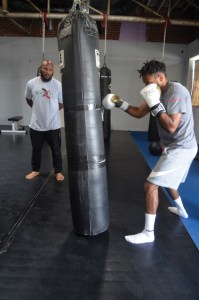
KickFit owner Rodney Wallace watches as Michael Barnes II works out on a punching bag. SHAVONNE POTTS/SALISBURY POST
Rodney Wallace, owner of KickFit, 108 W. Monroe St., Salisbury.
Wallace, who is a former Catawba College, running back, has been in business for four years. He was previously located in downtown Salisbury on North Main Street, but relocated when the business outgrew the space.
KickFit is a fitness/martial arts hybrid. Wallace instructs cardio kickboxing classes, boxing and mixed martial arts techniques.
He’s always had a passion for fitness but became interested in mixed martial arts and boxing in 2010. He competed around the world but always enjoyed coaching.
Question: What are your thoughts on what’s been happening in the nation and in Salisbury?
Wallace: I think there’s a lot of things that just chronologically happened that make this the spilling over point, you know taking a knee (in 2016 former San Francisco 49ers quarterback Colin Kaepernick knelt during the national anthem in protest of racial inequality and police brutality), and other instances that happened and feeling like there wasn’t overwhelming support. I think at this point it was just the last straw for the African-American community and most of us just want to be heard and there’s some emotional people who want to destroy stuff.
I think the gym is the place where people come to discuss these types of issues.
Question: Do you feel now is an opportune time to support black-owned businesses or do you feel this is the “popular” thing to do and will or won’t last?
Wallace: It’s hard to say the mindset of a community, especially the black community. I know we tend to look more at prices than we do at the socioeconomic impact of a thing, but I do believe it’s important to look at the socioeconomic impact of how you spend within the black community, within the community, period. The circulation of a dollar is powerful and that it stays in the community. I think people don’t really understand that or are educated fully on the impact of how to build a strong community, especially with people who are really the fabric of the community. I think it is trending to support black businesses, but I think the power of pricing will ultimately prevail.
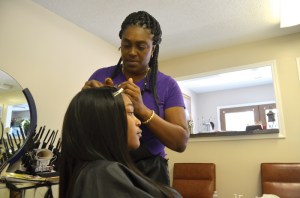
Kelly Taylor, owner of Majestic Creations Salon of Excellence, works on client Alexandrea Parks, 18, at her salon. SHAVONNE POTTS/SALISBURY POST
Kelly Taylor, owner of Majestic Creations Salon of Excellence, 512 Klumac Road, Suite 10, Salisbury.
The Salisbury native is a hairstylist and has been in business for 27 years.
Question: Do you feel as though you’ve always had support in this community, why or why not?
Taylor: I feel like I have. I’ve always had a clientele. I think I’ve had great support from the black community because that’s what keeps us going, but I don’t think I’ve had support from the city or the Rowan County Chamber or anything like that.
Question: Why do you feel like now is an opportune time to support black-owned businesses or do you feel that way? Do you feel like it will last or is the “popular thing” to do?
Taylor: I don’t feel now is an opportune time. It should’ve been from the beginning. I think the Black Lives Matter movement has a lot to do more with racism and politics. I don’t think it has much to do with just the everyday life of black-owned businesses.
I don’t think it will last because this is not the first time in our black history that this movement has taken place. It should’ve been an ongoing thing to support black-owned businesses, but it comes and goes, and it has for generations.
Taylor said she believes many are taking the Black Lives Matter movement out of context and what needs to happen from the movement.
Question: Have you encountered racism in the community, what was that experience and how did you handle it?
Taylor: She was harassed for rent payments and the landlord didn’t make repairs to the building. In her previous location she was near a barbershop whose stylists used the Confederate flag on their styling capes. She’s experienced price gouging on utilities and rent. In some cases, she’s experienced higher rent than other tenants in the same unit.
“I dealt with it for the most part because there’s not too many choices that you have. I think they know you don’t have the same choices that a person not of color would have. It’s not the same rules,” Taylor said.
“As far as the community, our community has a serious problem with racism and it’s getting worse. It’s not getting better,” she said.
Question: What are your thoughts on what’s been happening in the nation and in Salisbury as it pertains generally to racism and the Black Lives Matter movement? What needs to change or happen?
Taylor: “I think racism now is being put more in the spotlight so more people are aware, but what I think is when it doesn’t pertain to you, you don’t know there is an issue. A lot of people don’t think racism is as bad as it is because they don’t encounter it. But when you live it every single day it’s here. Do I think it’s going to change? I don’t. I think it’s exposing the people that you learn to deal with and not to deal with. I think it brought a lot of hidden people who have hidden race issues out but we need it to change. Racism is not just white against black it can come in any forms, skin tone, color, anything.
The first thing that needs to happen is people need to be held accountable for their actions and a lot of times you don’t see that happen.”
Question: Name a black-owned business that you support or you feel should be supported?
Taylor: Holmes Iron and Metal, Matangira Curbside Recycling, Ant’s One Stop, Pretty Girl Nailz, Frankie’s Chicken and Ribs, Keaton’s Barbecue, Elite Barbershop, I Cut That Barbershop, Big V Barbershop, 2 The Tee Barbershop, Designing U Salon, Unlimited Styles, One Stop Automotive, 704 Towing, Clifford’s Automotive.
Daniel Matangira, co-owner of Matangira Curbside Recycling, 675 Beagle Club Road, Salisbury.
Matangira, a native of Zimbabwe, has been in business for 13 years. In the beginning, Matangira was the only person of color were offering recycling that could be collected, baled and shipped.
The business provides trash pickup, recycling and shredding services as well as roll out services where residents/businesses can rent a 30 or 40-yard containers that can be dropped off and then collected later.
His passion for recycling grew out of his native Zimbabwe were there was a lot of deforestation and contamination.
Matangira and his brothers created the Mushayamunda Christian Development Foundation where they serve the people of Matsai area in Bikita, Zimbabwe. Through his business, Matangira is able to help fund programs including 35 primary schools, a feeding program, clothing distribution that helps up to 72,000 people as well as an eye clinic. The family also hosts an annual fundraiser.
His incentive to start the business was because of growing up in a climate where it’s all barren.
Question: Are you seeing an increase in moral and/or financial support of your business?
Matangira: “Initially no because there is a God movement that is moving in the community. God is bringing consciousness to the city. At the moment we are at equilibrium where people are weighing their moral consciousness and with that I’ve had a lot of people who reached out to me, especially from my church, who’ve asked, “Daniel, how are you doing, how is your business?”
He feels as though most of the things that are happening with the Black Lives Matter movement is, “bringing awareness to the type of person who is looking for balance because the narrative has been we are going to do business with people we are comfortable with so this is bringing the equilibrium back to say maybe we need to share this common business forum with people.”
Question: Do you feel as though you’ve always had support in this community, why or why not?
Matangira: “I’ve had a lot of benevolent support from people who either supported my village, knew my story and just well-wishes. For instance, Trinity Oaks, who is actually our single biggest customer.”
Question: Why do you feel like now is an opportune time to support black-owned businesses or do you feel that way? Do you feel like it will last or is the “popular thing” to do?
Matangira: “It’s good to do business, any business, regardless of white, blue, black or green. The question then becomes why would anybody want to just have white businesses only so this is just a good point of reference when we just get equality to the forefront of businesses. If someone has a business that we could benefit from why not patronize them, irrespective of black or white.
In life the only constant variation in life is change. This is not the climate for business as usual. Business has been a revolving target. You have to move and change with the times if you’re going to survive in it but at the same time, if all things were equal there is enough business to go around for everyone.”
Question: What needs to happen in Salisbury and in the nation as it pertains to race relations?
Matangira: Reconciliation and tolerance is long overdue on both sides. In most cases, the longer we sit with each other the more we realize we’ve got more in common with each other than not.
Question: Name a black-owned business that you support or you feel should be supported?
Matangira: Tax Centers of America, owned by Joseph Patterson.
He also noted the Rowan Chamber Minority Business Council, which has a list of minority-owned businesses or businesses that have minority managers/partners.


